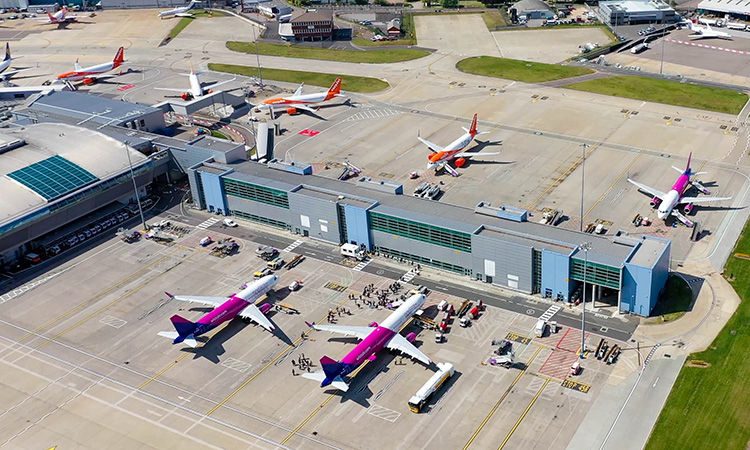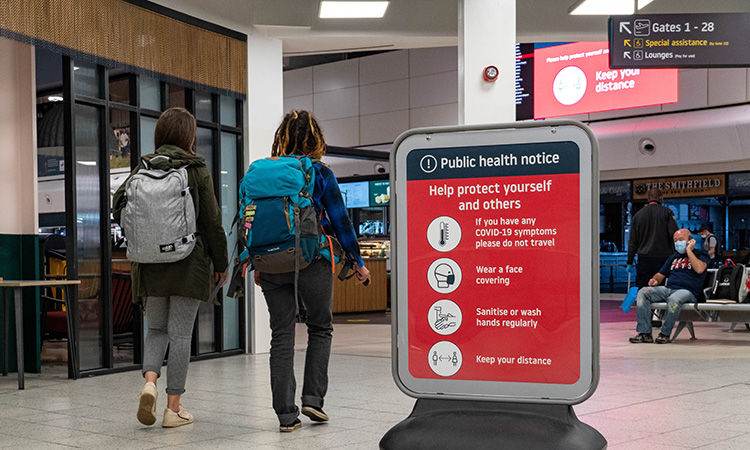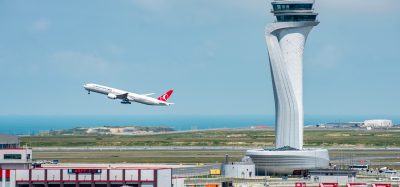For aviation to play its part in the UK’s economic recovery, airports need to fulfil their potential
- Like
- Digg
- Del
- Tumblr
- VKontakte
- Buffer
- Love This
- Odnoklassniki
- Meneame
- Blogger
- Amazon
- Yahoo Mail
- Gmail
- AOL
- Newsvine
- HackerNews
- Evernote
- MySpace
- Mail.ru
- Viadeo
- Line
- Comments
- Yummly
- SMS
- Viber
- Telegram
- Subscribe
- Skype
- Facebook Messenger
- Kakao
- LiveJournal
- Yammer
- Edgar
- Fintel
- Mix
- Instapaper
- Copy Link
Posted: 17 February 2021 | Alberto Martin | 1 comment
Alberto Martin, CEO of London Luton Airport, discusses the important role that airports will play post-pandemic in helping the UK to ‘build back better’, as well as the projects that are currently underway at Luton Airport to ensure that, once passengers return, there will be enough capacity to support them.


Credit: London Luton Airport (LLA)
Aviation has always made a significant contribution to the UK economy. Not just directly through the jobs that it creates, but also through the wider supply chain that it supports and as a facilitator of trade. Nationally, in 2019, the sector supported some 4.5 per cent of Gross Domestic Product (GDP) and 1.6 million jobs. Locally, London Luton Airport (LTN) supported more than 10,000 jobs and contributed £1.1 billion to the local economy in the same period.
While the COVID-19 pandemic has had far reaching effects on the sector, aviation will play an important role in the UK’s recovery, both in terms of economic growth and people’s longing to reconnect with friends, family and places. With many people looking forward to travelling again, and businesses needing to forge new trading relationships abroad, airports need to be ready to respond to this demand. This is why, at LTN, we are seeking to increase the capacity of the airport by one million passengers, to a total of 19 million a year.
Doing so will allow us to make the best use of our current infrastructure and ensure that we are able to drive growth once travel restrictions are lifted. Clearly, we will not reach 19 million passengers for some time yet, but we want to be in a strong position to respond to the demand for travel when it comes and to continue to contribute to the national and local economy, through the jobs that we create and the supply chain that we support. Taking action now is essential to prepare for what lies ahead.


Credit: London Luton Airport
Despite only seeking a modest increase in capacity, we’re not taking our environmental responsibilities any less lightly. We are committed to balancing our growth with the impact that we may have on our neighbours and the environment, which is why any increase in capacity will be done in accordance with our Responsible Business Strategy. In addition, to build on our good environmental management practices and to continue to reduce our carbon footprint, we are also developing a carbon reduction plan that will support the application.
We believe that our plans are consistent with the UK government’s ambition to build back better after the pandemic, as our planned expansion will not require any additional infrastructure at the airport and will enable us to make best use of the existing site, which helps to ensure sustainable growth.
Aviation will play a key part in the UK’s economic recovery by enabling travel and trade, at a time when both will be priorities for individuals and businesses alike. For that to happen, airports need to be in the best possible position to support the country’s recovery, and we need to take steps now to make that happen.
Alberto Martin has been London Luton Airport’s CEO since 2018, prior to which he was the airport’s Planning and Investment Director. As CEO, he has the led the airport through the final stages of a £160 million development programme prior to the pandemic.
Related topics
Airport crisis management, Capacity, COVID-19, Economy, Passenger volumes



















Seems that whilst the aviation industry waits for Government to issue guidelines & also look to the Government for £ millions funding for testing that will most likely ensure Covid-free flights, the industry continues to lose £ billions. If the aviation industry was serious in getting back to where it was, then why not take the initiative and invest in fit for purpose testing and propose better (customer-centric) CoVID control protocols, than Government is proposing.